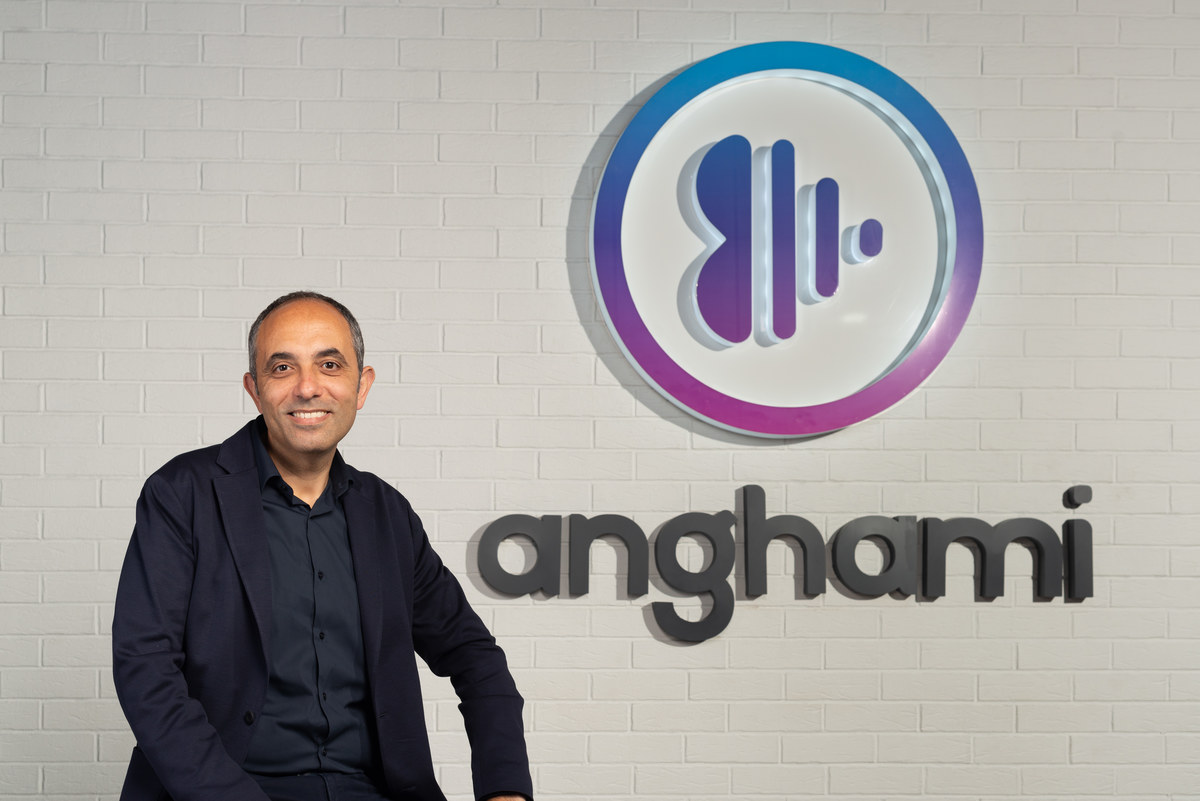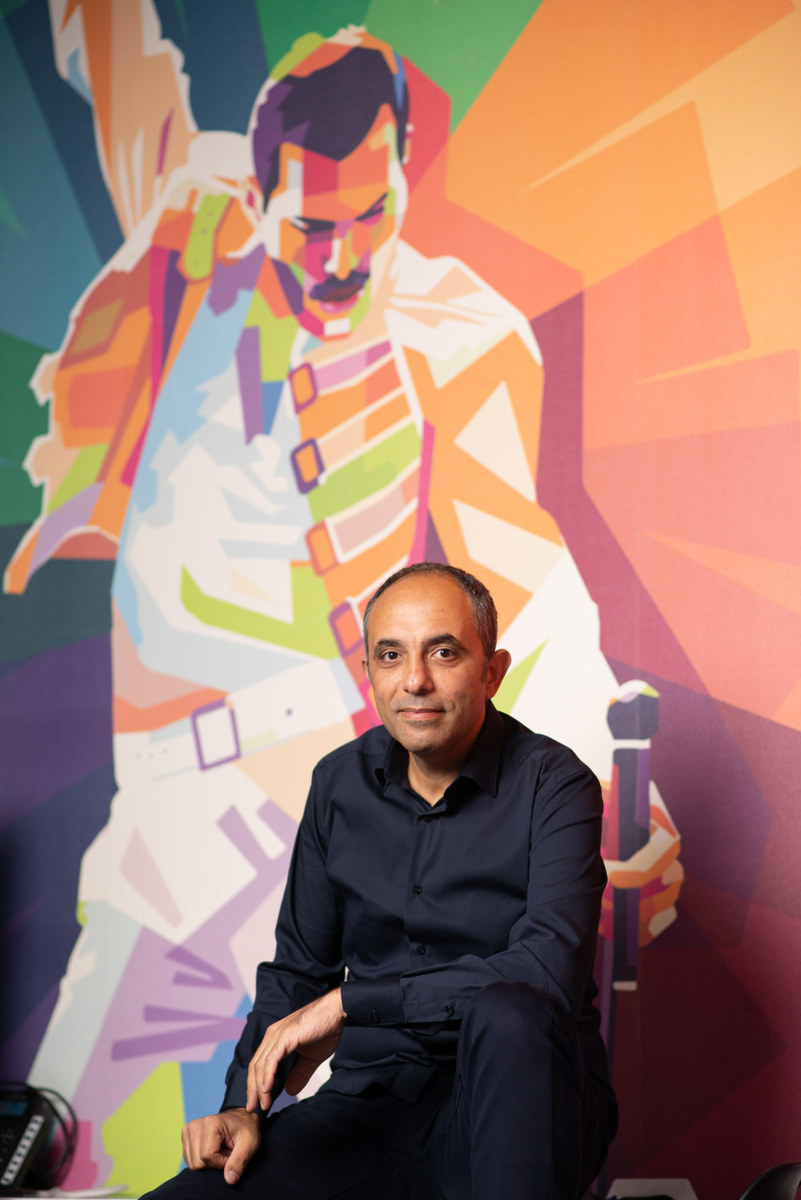Last month, regional music-streaming platform Anghami completed its merger with Vistas Media Acquisition Company and went public, becoming the first Arab tech company to trade on the NASDAQ stock exchange.
“Some might say 10 years is a long time, and some might say it’s not long enough, to become a public company,” Elie Habib, the co-founder and CEO of Anghami, told Arab News.
When Anghami was launched, in November 2011, people in the region were not accustomed to paying for music and music labels had no idea what streaming was, he said.
“The odds were not in our favor,” he added.
He and Eddy Maroun, co-founder and CEO of the business, were expecting just over 300,000 users in the first year, Habib revealed — instead they got 1 million users in the first three months. In the decade that followed, he said, they received several offers to sell the company.
“But, we felt that we were not ready because we could still grow the company — it hadn’t reached its maximum potential,” he said.

Anghami co-founder and CEO Elie Habib. (Supplied)
Anghami now has a library of 72 million songs, 75 million registered users, and about 40 telecommunications partners in the MENA region. The company is free from any fundraising or shareholder pressure and Habib and Maroun have the freedom to grow the company as they see fit.
Anghami’s growth has been accompanied by the development of the wider audio-streaming industry in the Middle East, which has attracted global players to the market. Apple Music, for example, launched around 2015-2016. In 2016-2017, meanwhile, Anghami recorded its highest growth.
“I have full respect for all the other music services but we are at a stage (in building Anghami) that is not comparable to others,” Habib said.
Along the way, French streaming service Deezer took part of Anghami’s content library and made it exclusive to its own platform. They “took a lot from our rule book but we kept growing anyway,” said Habib.
He added: “An international company opening in the Middle East is not exactly the same as being from the Middle East and understanding that we need to care about the artists, brands and users.”
The Middle East music industry is unique in several ways. For example, there are no big labels in the region, unlike Western markets, which means the requirements of the artists are different, said Habib. That is why Anghami partnered with Sony Music Middle East to launch the record label Vibe Music.
Arabic music makes up only about 1 percent of Anghami’s catalog but generates about 50 percent of its traffic. Arabic indie music and hip-hop each grew by 20 to 30 percent over the past year, showing that there is a growing demand for modern Arabic music. It is this demand that motivates Anghami to work with regional artists, said Habib.
“The artists in our region do not have a proper platform to disseminate their content,” he added.
Some global companies are also investing in promoting regional talent. Spotify, for example, launched its emerging artists program, RADAR, in 2020 and the following year it collaborated with online viral teen singing sensation Issam Al-Najjar from Jordan.
As part of that partnership, Spotify provided editorial and marketing support, including billboards in New York’s Times Square, as well as a host of social media promotions.

“It’s very different (from what we are doing),” said Habib, adding that Spotify’s main focus and investment is in podcasts.
“In our part of the world, we’re investing in music; creating a label and content,” he said. “That is very different from creating a marketing campaign for an artist.
“It is very important to know that Anghami is invested with the artists in the region; we are part of the ecosystem of artists.”
The company’s goal, he explained, is to attract a “whole new generation of artists” that want to create music and then empower them to do it at scale, in a profitable way.
As part of this commitment, Anghami has produced 300 original songs under its Anghami Originals banner and plans to launch Anghami Lab — a physical space combining food, music, artists and fans — across the Middle East, starting with the UAE and Saudi Arabia.
“Our interest in growing artists is linked to the interest in growing the music ecosystem in the Middle East,” said Habib. Anghami is therefore in the process of setting up multiple businesses that aim to help artists to grow in both the online and offline worlds, he added. Future plans include expanding across territories and industries.
“We’re trying to grow into places across the Middle East that we have not yet invested enough in, but we want to grow beyond the Middle East to wherever there is an Arab diaspora,” said Habib.
“We connect with the ear,” he added, which means looking for opportunities to invest in anything audio-related, including podcasts.
“We’re launching multiple services later this year which connect people to people, people to music, and people to other forms of audio content,” said Habib.

























